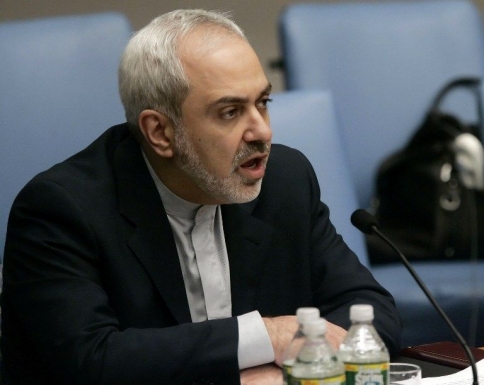Iran, world powers reach ‘historic’ nuke deal

GENEVA. — Iran and the so-called Group of Six nations holding talks over Tehran’s nuclear programme clinched a last-minute agreement yesterday morning following four days of talks, apparently resolving the decade-long dispute over the issue.
A formal signing ceremony was held in the UN building in Geneva yesterday involving representatives from China, France, Germany,
Russia, the United Kingdom and United States, led by the coordinator for the group, European Commission foreign relations head Catherine Ashton.
The core of the deal is a freeze on Iran’s nuclear programme, in particular work on enrichment facilities, in exchange for a relaxation of the economic sanctions that have crippled the Iranian economy.
The deal is interim and envisages further negotiations to hammer out measures to ensure Iran does not develop nuclear weapons, Israel’s Haaretz reported.
The deal includes a limit on Iranian enrichment of nuclear materials, the New York Times reported. It will also lead to a lifting of sanctions against Iran currently imposed by the United States and European Union within six months, Russia’s Foreign Minister Sergei Lavrov affirmed.
“This is a call to strengthen trust and allow our partners from the US and EU to relax the pressure of sanctions that they brought in against Iran, introduced unilaterally, without a decision of the Security Council,” he said. “We have never recognized these sanctions and it’s probably right to get rid of these unilateral sanctions in order to relax this strain on Iran.”
In exchange for the initial agreement, the United States will provide Tehran with sanctions relief worth around US$6-7 billion in unfrozen oil revenue assets, the New York Times said.
Lavrov said the agreement recognised Tehran’s right in principle to exploit nuclear technology for peaceful purposes under the auspices of the International Atomic Energy Agency, including the crucial issue of enrichment of nuclear materials, the main sticking point in previous talks between the two sides.
The deal “recognises Iran’s right to the peaceful atom including the right to enrichment, on the understanding that all questions about the Iranian nuclear programme that remain will be closed, and this program will be put under the strictest control of the IAEA. This is the final aim, but it is already set out in today’s document,” he said.
Lavrov’s statement seemed to be at odds with the view of his US counterpart, Secretary of State John Kerry, who insisted the agreement did not envisage allowing Iranian nuclear enrichment.
Under the deal, Iran will not be allowed to enrich uranium in excess of five percent purity, a level that is suitable for use in power plants, the New York Times reported.
Any uranium possessed by Iran in excess of 20 percent purity – a level suitable for conversion to use in a nuclear warhead – will be diluted or converted to oxide suitable for use as nuclear fuel, the paper said.
Iran currently holds up to 200 kg of 20-percent enriched uranium, Kerry said. Within six months, under the deal, Iran “will not hold a single kilo of that uranium,” Kerry said.
US President Barack Obama said the agreement included “substantial limitations which will help prevent Iran from building a nuclear weapon.”
Iran welcomed the agreement and said it was an opportunity to build renewed trust between all sides.
“We have formed a joint commission for monitoring the implementation of our agreement,” said Iran’s Foreign Minister Javad Zarif. “Both sides can move forward and regain lost trust. The Iranian people ask for respect for their right…I hoped trust will be restored,” he said.
Zarif said the deal had a “clear reference that enrichment will continue,” AFP reported.
The deal was criticised by some Republican senators, and Israel.
“Unless the agreement requires dismantling of the Iranian centrifuges, we really haven’t gained anything,” South Carolina’s Senator Lindsey Graham tweeted.
Illinois Senator Mark Kirk said the deal “gives Iran billions” for “cosmetic concessions,” while Georgia’s Senator Tom Price claimed the agreement left Iran’s nuclear program largely in place while weakening a sanctions regime that had taken a long time to put together.
Israel’s hardline Prime Minister Benjamin Netanyahu dismissed the agreement as a “bad deal” and said Israel would be reviewing its options. — RIA Novosti.









Comments